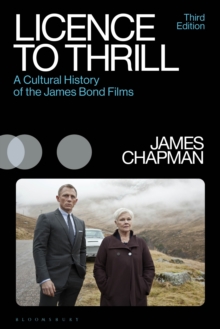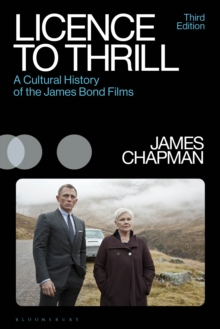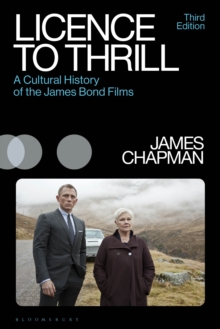
Film Propaganda : Soviet Russia and Nazi Germany Paperback / softback
by Professor Richard (Swansea University, Wales, UK) Taylor
Part of the Cinema and Society series
Paperback / softback
Description
Lenin, Stalin, Trotsky, Hitler and Goebbels all regarded cinema as their most important weapon for mass political propaganda.
This revised and expanded edition of "Film Propaganda" examines the ways in which cinema was used for political purposes by two of the most highly politicised societies in twentieth-century European history. "Film Propaganda" is still to date the only book in English to compare these two cinemas and examine both in depth.
Richard Taylor demonstrates how cinema was brought under political control in each country and goes on to explore the themes and stereotypes projected by the feature films that were produced.
In so doing, he highlights the means used by the authorities to condition and control the filmgoer as individual spectator and as member of a mass audience.
This process is examined in greater depth in a series of detailed analyses of films selected for their particular political significance, including "October", "Alexander Nevsky", "Triumph of the Will", "The Wandering Jew" and, new to this edition, the 1949 Stalin cult film, "The Fall of Berlin". Also new to this edition are appendices with details of films viewed by Hitler and Goebbels, which were captured by the Red Army from Berlin 's ruins in 1945 and were considered by Stalin for release during the film famine years after the war.
Information
-
Out of stock
- Format:Paperback / softback
- Pages:288 pages, 40 b&w illustrations, bibliography
- Publisher:Bloomsbury Publishing PLC
- Publication Date:30/07/2009
- Category:
- ISBN:9781860641671
Information
-
Out of stock
- Format:Paperback / softback
- Pages:288 pages, 40 b&w illustrations, bibliography
- Publisher:Bloomsbury Publishing PLC
- Publication Date:30/07/2009
- Category:
- ISBN:9781860641671










